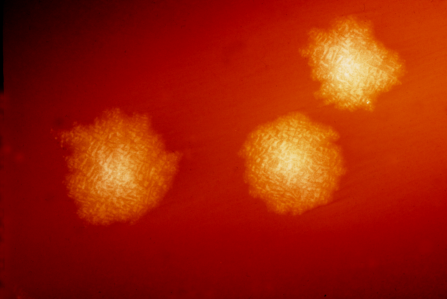Ancient remedy becomes novel approach to treating Clostridium difficile infection

Modern medicine is taking a new look at an ancient remedy for severe diarrhea as a novel approach to treat a serious gastrointestinal infection.
Clostridium difficile, or C. diff, is a common bacterium that can take advantage of an imbalance of intestinal microbiota, most commonly triggered by antibiotic use. The imbalance leads to C. diff overgrowth and infection, which can lead to multiple complications.
With the increased use of antibiotics, C. diff infection (CDI) has reached epidemic proportions in the United States and other regions around the world. Unfortunately, infection recurs in up to 30 percent of patients. With each subsequent recurrence, the relapse rates increase significantly.
CDI has become the leading cause of hospital-associated infections and a major source of morbidity and mortality for hospitalized patients. Studies estimate the hospital cost in the United States for CDI alone is more than $3.2 billion per year.
An article in the current issue of AACN Advanced Critical Care, "Clostridium Difficile Infection and Fecal Microbiota Transplant," reviews the epidemiology of CDI, clinical presentation of infection, diagnosis and various therapies including fecal microbiota transplant (FMT).
An ancient remedy to treat severe diarrhea and other gastrointestinal ailments, FMT has become increasingly recognized as an effective therapy for multiple recurrent CDI.
Mentions of the novel therapy date back to fourth century China, with the practice later called "yellow soup."
Contemporary FMT aims to restore balanced and healthy bacteria in the colon through a transfer of donor feces and thus break the cycle of imbalance and infection, especially for those patients with recurring or nonresponsive CDI.
With a nearly 90 percent cure rate in many observational and randomized controlled trials since 2010, FMT has revolutionized the treatment of CDI and is becoming more widely used.
"FMT is gaining in prominence in many parts of the world, and the future of CDI treatment will most likely involve more advanced forms of FMT, such as capsules, advanced probiotics and prebiotics," said co-author Alyssa Liubakka, MD, an internal medicine resident at the University of Minnesota, Minneapolis.
More information: A. Liubakka et al. Clostridium difficile Infection and Fecal Microbiota Transplant, AACN Advanced Critical Care (2016). DOI: 10.4037/aacnacc2016703

















